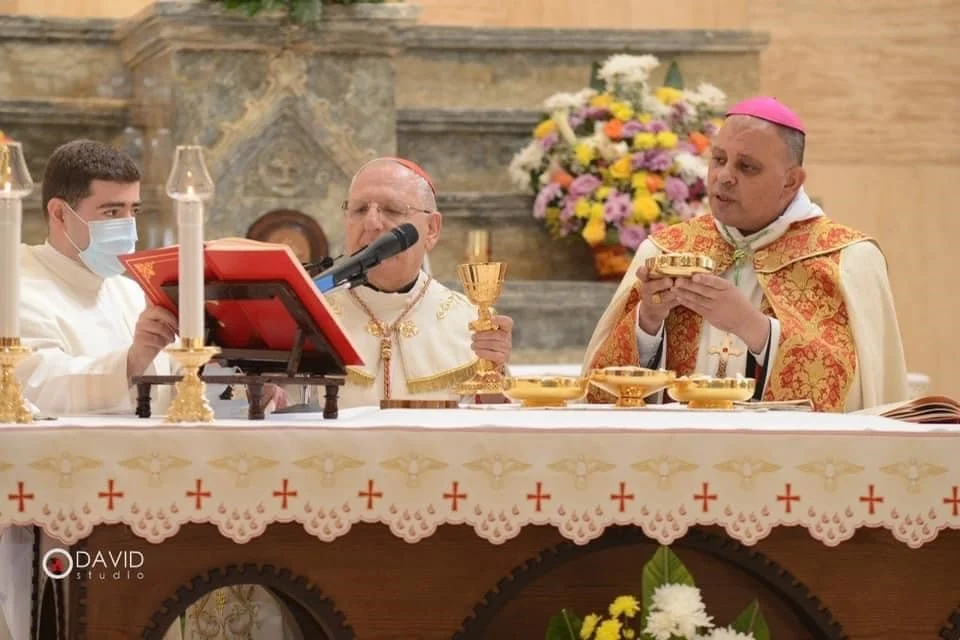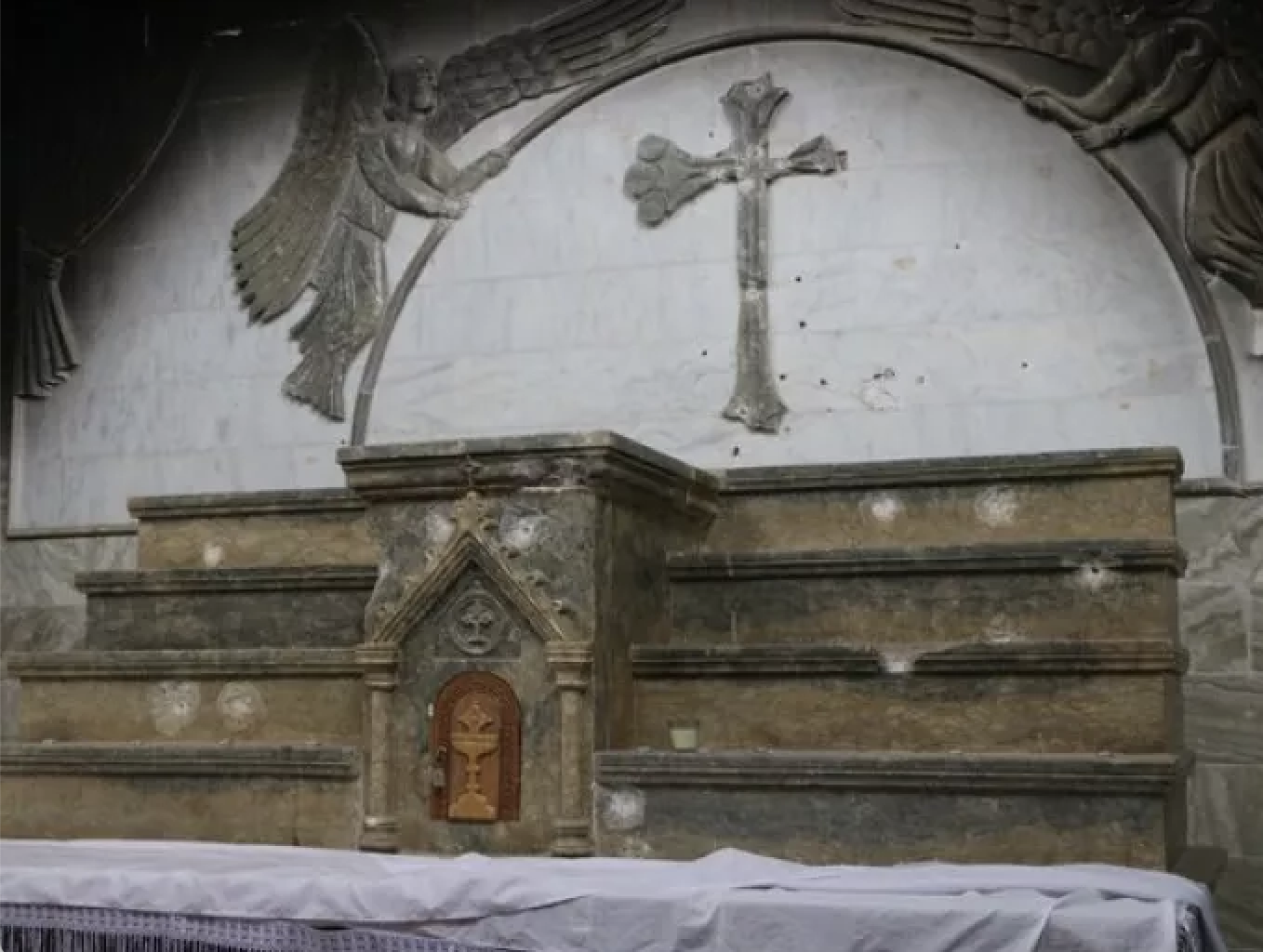New Chaldean Bishop Has Firsthand Experience of ISIS’ Campaign of Genocide
Bishop Thabet Habib Yousif Al Mekko was consecrated Bishop of Alqosh in Northern Iraq on Oct. 22.
Chaldean Father Thabet Mekko pokes through the rubble that was once his family home on March 18, 2017. (photo: Edward Pentin)
Interview by Edward Pentin
KAREMLASH, Iraq — An Iraqi priest whose family home was destroyed by ISIS has been consecrated bishop in a church he has spent the past four years restoring.
Chaldean Bishop Thabet Habib Yousif Al Mekko, a popular priest who for many years has dedicated himself to serving the faithful in his native Nineveh Plain town of Karemlash, was consecrated Bishop of Alqosh on Oct. 22 by Cardinal Louis Raphael Sako, the Chaldean Patriarch of Babylon.
In this Nov. 14 email interview with the Register, Bishop Mekko shares his reaction to his appointment, describes the current challenges facing Christians in northern Iraq four years after liberation from ISIS, and shares his hopes for the beatification of Father Ragheed Ganni and companions, who were martyred in 2007.
Father Ganni, who studied at the Pontifical University of St. Thomas Aquinas in Rome, was buried in Karemlash in the church of St. Adday that Bishop Mekko has spent the last few years helping to restore, after it was ransacked by the Islamic State militant group in the mid-2010s.
Bishop Mekko told the Register much still needs to be done to help restore the ancient Christian communities in the region, a major task, he said, that requires the charitable aid of the international community as well as commitment and dedication of the local faithful.
Above and below, scenes from the consecration Mass of Bishop Thabet Habib Yousif Al Mekko (r) in St. Adday church, Karemlash, whose restoration work he led. (Photo: Bishop Mekko/Facebook).
Your Excellency, what is your reaction to the news of your appointment?
Being chosen as bishop was truly surprising, and I was embarrassed because I was very attached to the parish I had been serving. I had many projects there relating to the restoration of the village of Karemlash, as well as many goals, both pastoral and social, to achieve as a priest. However, the call of the Lord triumphed and guided me to give my consent to accept this grace that I do not deserve.
How do you hope to exercise your ministry as a bishop to help local Christians?
Zeal for the Church has been energy-giving for me, so I hope to continue with more strength and zeal proclaiming the word of God and helping my Christian brothers have more confidence in their Christian calling in Iraq. The service I began as a priest aimed to create a means through which faith is integrated with social commitment and fidelity to our Christianity in Iraq.
What is the situation like at the moment in Alqosh?
The Diocese of Alqosh has its own particular challenges. One moves between areas of the diocese through checkpoints that belong to KRG [Kurdish Regional Government] and others manned by the federal government of Baghdad, the PMF [Popular Mobilization Forces of the Iraqi government]. Also, there are destroyed areas that must be reconstructed, and very many continue to be displaced as a result of the former ISIS [occupation].
The bullet riddled altar in St. Adday church pictured in 2017 that Bishop Thabet Al Mekko has now restored. (Photo: Edward Pentin)
The political and administrative situation is unclear because of the problems between the KRG and the federal government. Unemployment and young people are without work, so many families have gone away, leaving behind a void and problems that arise from this complicated situation. The government is providing services in accordance with its capabilities, but there are many things they could do better …
This interview was originally published on the National Catholic Register website. Please click here to read the full text.



